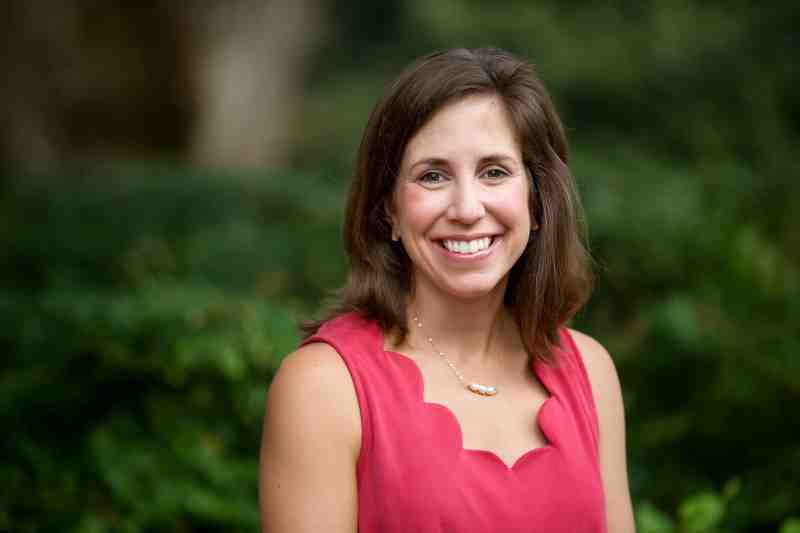MC School of Nursing Instructor’s Powerful Paper Captures CNC’s National Faculty Essay Award

A paper exploring how nurse educators can better meet the needs of professional nurses interested in pursuing graduate education opportunities written by an instructor in the School of Nursing at Mississippi College has been selected as the “faculty winner” of an annual essay contest sponsored by the Commission on Nurse Certification.
“I Have the CNL Power to Teach” by Jeanne Bernier, director of the Master of Science in Nursing-Clinical Nurse Leader Program in the MC SON, has been honored by the CNC, an American Association of Colleges of Nursing-affiliated body that governs clinical nurse leader certification activities and promotes CNL practice.
The essay is the second penned by a member of the MC SON’s Clinical Nurse Leader Program to receive a CNC award. Cindy Vanlangendonck, who studied under Bernier, graduated from the MSN-CNL Program, and is an adjunct faculty member in the MC SON, earned the honor as a student last year.
“This is truly a reflection of who Jeanne is and her gifts in nursing education,” Sharp said. “It is amazing to have two of our own win the competition two years running. The CNL Program is gaining strength, and our graduates and faculty are doing fantastic things to bring about measurable improvements for patient care outcomes.
“Good things are coming out of the CNL program, and we are blessed to have strong expertise in the Mississippi College School of Nursing.”
In her essay, Bernier asks the fundamental question, “What does graduate education for nurses look like today?”
“Everything is different today than when I was an undergraduate student almost 20 years ago,” she said. “Graduate students today are no longer solely focused on school. School is not their job. They are working nurses. They have families. They are mothers and fathers.
“School is something they strive to achieve, but it’s not their central focus, and it can’t be as a nurse working in the current environment.”
Considering the many challenges working nurses face today, Bernier postulates the most effective way faculty can engage graduate nursing students is by accommodating their schedules, rather than the other way around.
It’s a concept that has met with great success at Mississippi College.
“By adjusting the schedule of our required online courses to meet the needs of our students, we’ve become totally asynchronous,” Bernier said of MC’s Clinical Nurse Leaders Program. “By supporting the schedules of our dayshift nurses and our nightshift nurses, what we have to offer our students is a gamechanger. It has allowed them to consider our program and succeed in our program. It’s why these incredibly busy nurses have earned master’s degrees.
“Having their master’s degree and CNL certification benefits our graduates in their own careers, and more importantly, it benefits the entire discipline of nursing. Our graduates are positioned as nurse leaders that will help fight some of the major health care challenges we face today while improving patient care and patient outcomes.”
The Clinical Nurse Leaders Program enrolled its first students in the fall of 2019.
“Prior to the launch of the program, we sought permission with CNC to be recognized as a CNL-designated school in order to allow several of our faculty to prepare for and complete the credentialing exam to certify as Clinical Nurse Leaders,” Sharp said.
Bernier was among the first MC SON faculty to be credentialed as Clinical Nurse Leaders, along with Karen Ivie and Taylor Martin.
“Jeanne is an extremely gifted faculty member and has been instrumental in putting into place our online tracking and compliance system for the School of Nursing,” Sharp said. “She is a problem-solver and creatively navigates challenges and develops innovative and workable solutions.
“I am not surprised that she is a winner of the CNC faculty award essay.”
The essay’s subject became deeply personal to Bernier when she decided to pursue a mostly online doctoral degree from the University of Tennessee last fall.
“Now I’m a working student again,” she said. “It’s been some time since I received my master’s, and I realized how accommodating the online schedule is.
“Stepping back into the shoes of a student and working at MC has made me appreciate the schedule we offer our students – the greater flexibility and being able to work on what you can when you can.”
She said the COVID-19 pandemic has changed prevailing opinions about the need for online learning.
“Students in the first couple of cohorts of the Clinical Nurse Leaders Program who worked and studied through the pandemic helped us recognize areas for improvement and helped us modify our courses to work better with their schedules,” she said. “Instructors who were not very familiar with online learning understand the importance of it much more.
“The success of my students, especially those who have just graduated, echoes what they have said about the need for online learning from the beginning.”
She said the most important thing schools of nursing can do to help meet today’s nursing challenges is to continue supporting and seeking best practices for online education.
“Many programs have been online for some time and have found better ways to provide education. We learn from them all the time, and we need to continue to learn from each other to promote online graduate nursing programs,” she said. “We as faculty need to continue to find ways to adapt to our students, rather than asking students to adapt to us.
“Students are more tech-savvy than ever. We, as educators, can’t stay tech-stagnate. We have to meet certain accreditation standards, but we also need to be open to change and innovation from other programs, from other nurses, and from our own students.”
Sign-up For Our Newsletter
Get the latest news about Mississippi College delivered right to your inbox by subscribing to the Along College Street e-newsletter.


